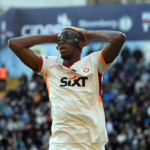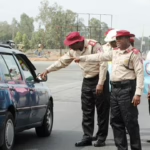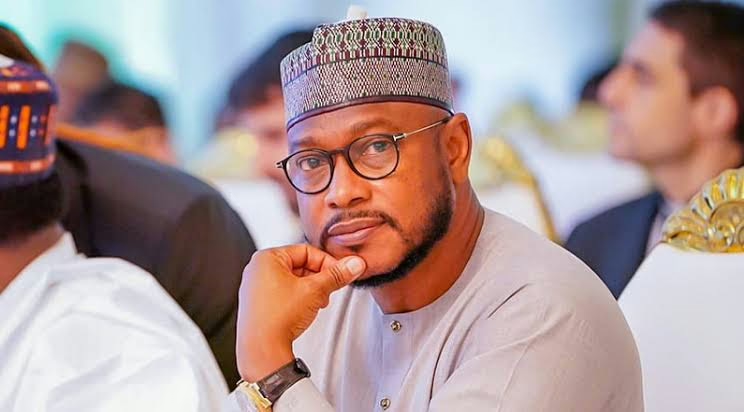Part One: The Visionary Architect
The political landscape of Zamfara resembles a timeworn battlefield, marked by enduring rivalries, fluctuating alliances, and the relentless struggles of power seekers vying to shape its future. For decades, the scene was monopolized by entrenched figures, deeply rooted in networks of loyalty, patronage, and influence. Politics here was less about public service and more a complex maze of scheming, embezzlement, favoritism, and religious manipulation.
Amid this turbulent backdrop emerged Dauda Lawal-not as a product of the established elite, but as a fresh force challenging the status quo. His entrance was akin to a sudden monsoon breaking a long drought: surprising, invigorating, and unsettling to those accustomed to stagnation. Rather than merely joining the fray, he transformed it, introducing a new cadence into an old, repetitive tune. With a background in banking and international connections, he spoke a language unfamiliar to the entrenched political heavyweights, yet one that resonated deeply with a populace weary of empty rhetoric.
Lawal’s rise was no tentative approach to Zamfara’s political fortress; it was a decisive breakthrough, a daring leap over the moat of skepticism, forcing open doors long guarded by nepotism and complacency. His narrative became intertwined with the collective yearning for renewal, positioning him not as a successor to the old regime but as the pioneer of a fresh beginning.
Like the Sokoto River patiently shaping the arid plains, steady and relentless, cleansing the land it touches, Dauda Lawal navigates Zamfara’s political terrain with a message unheard before and actions preceding words. His journey is etched in the rich dust of Zamfara’s earth-a land abundant in resources yet too often a source of hardship for its people.
His ascent tells of a man who started from humble origins but grew to embody the dreams of a community long seeking peace, respect, and growth. Raised beneath the vast savannah skies, where the call to prayer mingled with the whisper of millet and cotton fields, he was nurtured in a culture that taught life as both responsibility and destiny. Though his upbringing lacked luxury, it was rich in wisdom. Early on, he understood that while Zamfara’s hills concealed precious minerals, true wealth was found in integrity, discipline, and the resolve to overcome adversity. This belief, planted in his youth, blossomed like a resilient baobab tree, now offering shade to many.
Education served as his gateway beyond the ordinary. Each classroom was a portal; every book, a beacon. He traversed dusty trails to school, clutching dreams as tightly as his notebooks, his resolve as unyielding as the harmattan winds. The boy who studied beneath flickering kerosene lamps matured into a man who would later command polished boardrooms, yet he never allowed urban glamour to dim his connection to his roots. Like Zamfara’s hunters who roam far but always heed the call of home, Dauda carried his heritage wherever he went.
His tenure in banking was the forge where his principles of order and accountability were tempered. Rising to the position of Executive Director at First Bank of Nigeria, he mastered the art of finance, but to him, numbers were not mere figures-they represented the lifeblood of families, the heartbeat of communities, the aspirations of nations. Behind every ledger and balance sheet, he saw human stories: the farmer seeking funds to expand his land, the merchant aiming to grow her business, the youth saving for a brighter tomorrow. Banking, in his view, was a sacred trust, a pact where financial stewardship upheld human dignity. This ethos later became the foundation of his governance philosophy: public funds are a solemn trust to be managed with care, not exploited for greed.
Yet, his success in banking did not breed complacency. During those years, Dauda realized that corruption was more than theft-it was a betrayal of children in dilapidated schools, mothers trekking miles for water, and youths deprived of opportunity. It was in these battles for reform that he honed his belief that leadership must serve as both protector and surgeon: a shield for the vulnerable and a scalpel to excise decay.
When Dauda Lawal re-entered Zamfara’s political arena, he was like a prodigal son returning not empty-handed but equipped with skills forged in distant lands. He came back to a state both blessed and broken. Zamfara is a land of contradictions: rich in gold and silver, gleaming like hidden treasures, yet marred by poverty and violence. Its once vibrant fields of cotton, millet, and sorghum had fallen silent under the weight of corruption and banditry. Villages bore scars from raids that left homes in ruins and hearts grieving. The disparity was stark: a land where divine abundance lay beneath the surface, yet its people endured hunger and fear.
Dauda’s emergence was a direct response to this paradox. He entered politics not dazzled by titles but driven by responsibility. To him, Zamfara resembled a wounded lion-majestic yet bleeding-requiring both healing hands and courageous guardianship. His approach combined technocratic precision with heartfelt empathy: governing with the discipline of a banker and the compassion of a native son. He viewed leadership as stewardship, where every naira in the treasury is a seed to be carefully nurtured to yield schools, hospitals, roads, clean water, electricity, commerce, jobs, peace, and progress.
Security, in his eyes, transcended policy documents; it was a moral imperative. He inherited a state where fear had become ingrained, where families slept uneasily, and once-bustling trade routes lay deserted under the shadow of bandits. Today, Dauda confronts insecurity like a farmer facing a locust swarm-not with despair but with strategy-knowing that swift, wise action is essential to protect the harvest. He is enhancing cooperation with security forces, investing in community watch programs, and addressing the root causes of banditry-poverty, unemployment, and neglect. For him, weapons may silence bandits temporarily, but only education, employment, and hope can silence them permanently.
His economic vision is deeply rooted in Zamfara’s land. He often describes gold as both a blessing and a challenge-a resource that can illuminate the state’s future if managed transparently, but a curse if left to illegal mining and exploitation. Like a jeweler carefully cutting a precious gem, Dauda aims to transform the state’s resources into engines of shared prosperity. Agriculture remains a cornerstone: he envisions fields once abandoned to fear flourishing again with millet, sorghum, and maize, feeding families and stimulating trade. To him, every farmer is an investor, every harvest a dividend of peace.
Education is equally central to his vision. He frequently emphasizes that Zamfara’s youth must inherit not only the riches beneath their feet but also the light of knowledge. Governance, in his philosophy, means building schools brighter than the flames of violence, training teachers who sow wisdom as diligently as farmers plant seeds. Education is both a shield against ignorance and a sword against poverty. Accordingly, he has initiated the construction of new schools, cleared longstanding educational debts at the secondary level, awarded scholarships and bursaries to tertiary students, supported indigent learners, encouraged educational innovation, and fostered environments conducive to both teaching and learning. The state’s 14 local governments are awakening with renewed hope and a vision for a brighter future through education.
What makes Dauda Lawal’s political philosophy compelling is how it reflects Zamfara’s own identity-a land of contrasts: harsh yet beautiful, wounded yet resilient. Its people resemble griots singing beneath starlit skies, carrying histories of struggle while weaving hope into every melody. Dauda governs with purpose, seeing himself as a conductor orchestrating a symphony where every community, culture, and tradition plays a vital part. His goal is harmony, not uniformity; a symphony, not silence. Like a kora player drawing beauty from tension and release, he balances modern governance with cultural roots, reform with tradition, ambition with humility.
Critics remain vigilant, cautioning that insecurity’s roots run deep, corruption’s reach is extensive, and Zamfara’s challenges are formidable. Yet, Gamjin Gusau, Odogwu 1 of Africa, often speaks of patience, likening governance to tending an orchard: planting seeds today, watering diligently, protecting against pests, and trusting that the harvest will come in due time. He shuns promises of instant miracles, knowing that quick fixes are like fireworks-bright but fleeting. Instead, he pledges steady growth, like a tree that takes years to mature but ultimately provides shade for generations.
His personal journey embodies his ideology. The boy who once walked dusty paths to school now builds roads for others. The banker who safeguarded billions now protects public funds with equal vigilance. The reformer who battled corruption now confronts poverty and violence with unwavering resolve. His life, like Zamfara’s story, is a testament to resilience: to fall and rise, to struggle and sing, to suffer and hope.
Today, as he moves through Zamfara’s towns and villages, he is welcomed not merely as a governor but as a son returning to restore his father’s home. That home is battered-walls cracked by years of neglect, roofs leaking from storms of violence, floors weakened by poverty. Yet Dauda arrives equipped with tools-discipline, vision, empathy-and determination. He understands the work ahead will be long and arduous, but he also knows that once restored, this home will shine with the richness of its soil and the strength of its people. He is the sturdy baobab offering shelter to all.
Ultimately, Gamjin Gusau’s political philosophy and leadership mirror Zamfara itself: a dance between shadow and light, tradition and progress, despair and hope. He governs like the Sokoto River-sometimes gentle, sometimes forceful, but always moving forward, carving a path toward renewal. He speaks like the griots, blending memory with promise, grounding his people in heritage while guiding them toward the future. He carries Zamfara’s burdens like a farmer bearing water jars from the well-step by steady step, unwavering. In his story, Zamfara finds not just a governor but a guardian, not merely a politician but a pledge. He is both son and steward, reformer and reconciler, a leader who understands that authority is not a crown but a yoke, not a privilege but a responsibility. Like the golden veins beneath Zamfara’s earth, his vision runs deep-visible, potent, shaping policies, inspiring hope. If his dream endures, Zamfara’s name will one day be sung with pride, a land where wealth is found not only in the ground but in the lives of its people.
Yet, as he labors to rebuild this battered Zamfara, the political arena grows restless. Opponents, armed not with tools to construct but with tactics to distract, swarm the stage. Local elections, instead of reaffirming grassroots democracy, have become battlegrounds of obstruction. In Zamfara’s rugged political savannah, where ambition prowls like lions, Dauda finds himself not only governing but defending against shadows.






















